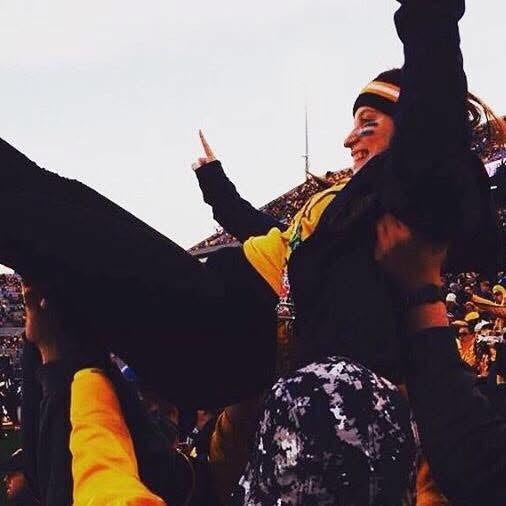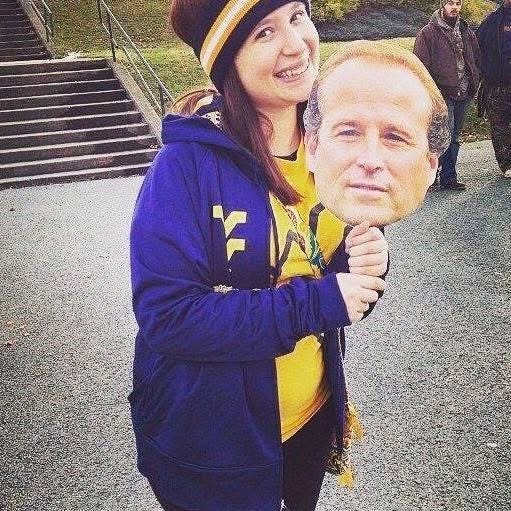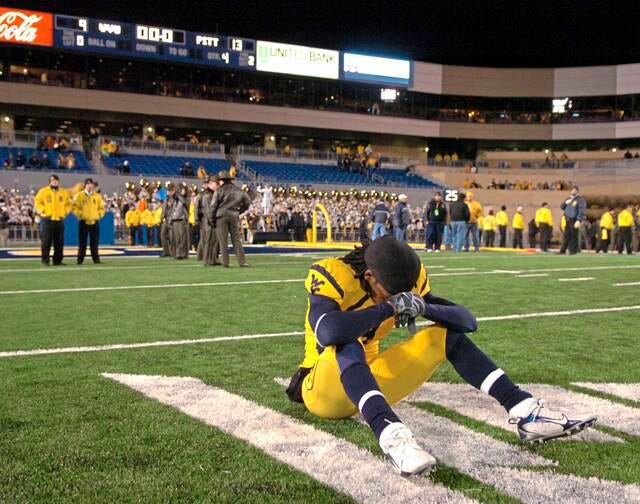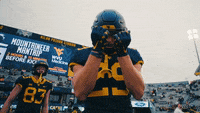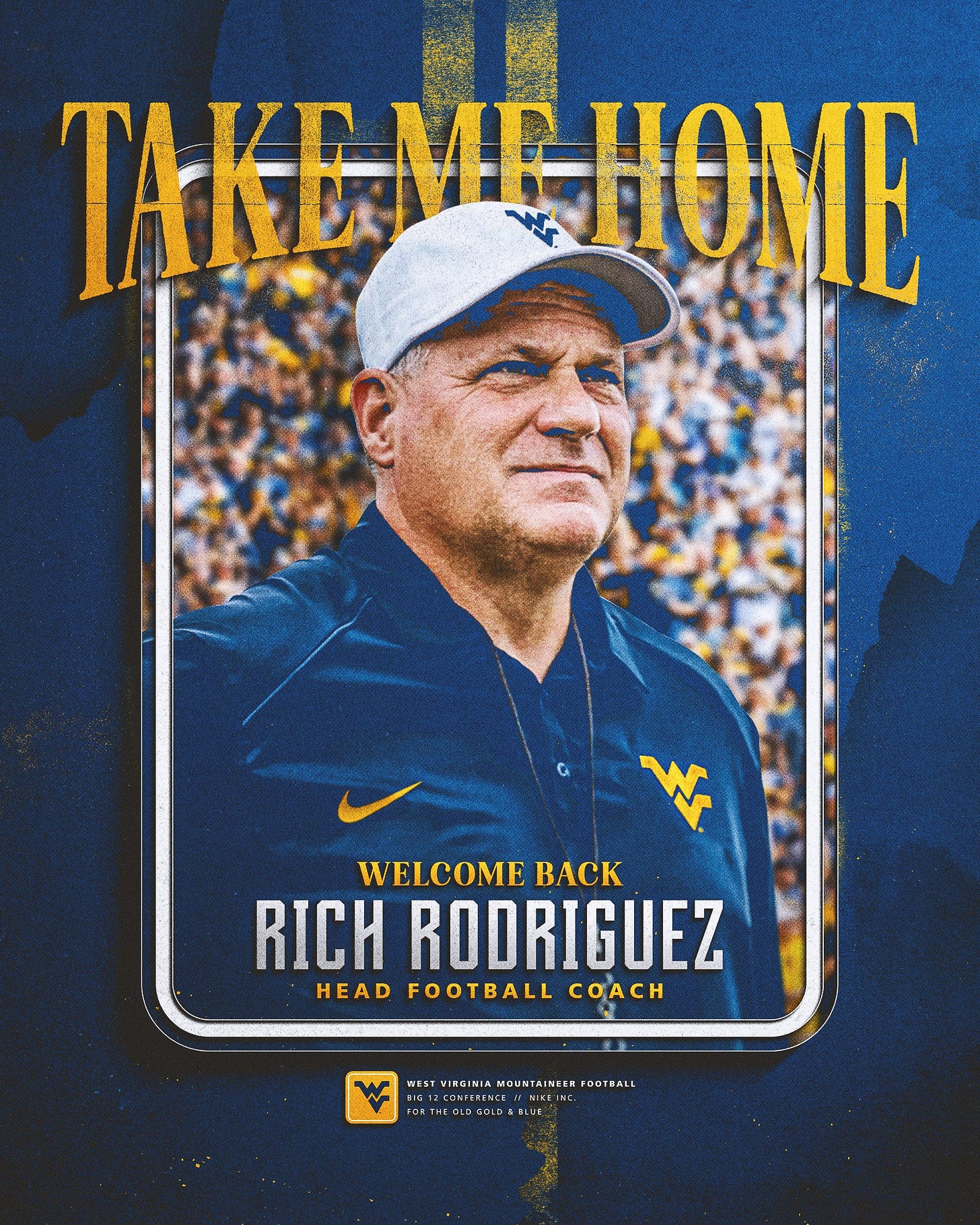
Rich Rodriguez is Back at WVU—What Could Possibly Go Wrong?
Let’s unpack the drama, the betrayal, and why Mountaineer Nation is giving Rich Rod a second chance.
Never Go Back to Your Ex (Unless You're WVU Football)
When I heard the news that Rich Rodriguez was coming back to WVU as head coach, my first reaction was, “Wait, what?” My second was a slightly less charitable version of, “Are we really doing this again?”
For West Virginians, WVU football is sacred—it’s our shared heartbreak, joy, and pride rolled into one chaotic 60-minute game every week in the fall. But for those of us who lived through the last Rich Rod era, this news feels a little like seeing your ex slide into your DMs: confusing, a bit cringe, and yet oddly tempting.
I want to be clear about one thing: I could have gone the rest of my life without another Rich Rod era but here we are.
For those who have no ties to WVU football or no idea what I’m talking about, let me catch you up: Rich Rodriguez is the former coach who led West Virginia University to the brink of a national championship in 2007, only to leave the team—and the entire state—right after one of the most devastating losses in college football history. This loss also had some serious ramifications for college football, as outline in this amazing article by The Front Porch:
Now, nearly two decades and a boatload of drama later, he’s back. And Mountaineer Nation has some feelings about it.
Let’s unpack this, shall we?
Watching the Dream Slip Away
Let me take you back to 2007. WVU football was having a dream season. We had Pat White and Steve Slaton leading an unstoppable offense, a rabid fanbase hungry for a national championship, and an almost guaranteed ticket to the title game. All we had to do was beat Pitt in the Backyard Brawl—a game we were heavily favored to win.
But instead of celebrating on the field, Mountaineer Nation watched in stunned silence as the game ended in a devastating 13–9 loss. To say the heartbreak was palpable would be an understatement. It felt like the entire state was holding its breath—and then collectively exhaled in despair.
Then came the rumors. The days after the Pitt game were full of whispers: Did Rich Rod throw the game? Was he already planning his exit before the final whistle blew? Stories swirled that he left on a helicopter immediately after the game, heading off to finalize his deal with Michigan. The idea that he might have had one foot out the door during the most important game of his career only added salt to the wound.
Rodriguez has denied the accusations over the years, but the damage was done. For many Mountaineer fans, the timing of his departure felt too coincidental, too messy, and too much like a betrayal.
The Lawsuit That Followed
As if losing our coach wasn’t enough, the drama escalated when WVU sued Rodriguez for breaching his contract. At the time, he owed the university $4 million as part of his buyout clause. He refused to pay and the ensuing legal battle was public, messy, and bitter.
In the end, Rodriguez settled, agreeing to pay the full $4 million, with some assistance from Michigan. But the lawsuit only cemented the feelings of betrayal among WVU fans. It wasn’t just that he left—it was how he left, and how it felt like the university, and by extension, the state, was treated as an afterthought.
Once a Mountaineer, Always a Mountaineer
There’s a saying at West Virginia University: “Once a Mountaineer, always a Mountaineer.” It’s something we take pride in—this idea that being part of WVU isn’t just about sports; it’s about family, loyalty, and shared experiences. But when Rich Rodriguez walked away in 2007, it felt like he turned his back on all of that.
Still, here we are, welcoming him back (for better or worse). It’s a testament to just how deeply rooted that phrase is in our identity. We believe in second chances. We believe in redemption. And maybe, just maybe, we believe that Rich Rod can bring back the magic he once gave us. I mean, let’s be honest, the least he can do is get us a National Championship (we’ll take an apology first).
In Summation, A Timeline of Events:
Rich Rodriguez's departure from West Virginia University (WVU) in 2007 was one of the most dramatic and contentious moments in the history of Mountaineer football. Here's the full picture, including the details and the rumors that swirled around his exit:
1. The Success at WVU:
Rodriguez took over as head coach in 2001 and led WVU to significant success, including an undefeated regular season in 2007 and a chance to play in the BCS National Championship game (which was ultimately derailed by the 13-9 loss to Pitt).
His "spread offense" revolutionized college football, and WVU became one of the most exciting teams in the country under his leadership.
2. The Michigan Job Offer:
“After” the 2007 season, Rodriguez's name started circulating as a potential candidate for the head coaching position at Michigan, one of the most storied programs in college football.
Despite WVU’s success, rumors began swirling about his dissatisfaction with his contract and his desire for more financial security. He was reportedly unhappy with the way the university treated him compared to other top coaches in the country.
3. The Controversial Departure:
The departure itself was messy. Rodriguez met with Michigan officials and ultimately agreed to become their next head coach. However, he did not communicate his decision to WVU until he made it public. This led to a plethora of rumors that he was in talks with Michigan before the Pitt game (which I think we have all come to the general conclusion that he was).
On December 16, 2007, Rodriguez formally accepted the Michigan job, and the announcement caused an immediate backlash from WVU fans. There was a sense of betrayal, especially given the team’s success just a week before.
4. The Legal Drama:
WVU tried to keep Rodriguez by enforcing a buyout clause in his contract, which was set at $4 million.
However, the university also filed a lawsuit against Rodriguez for breaching the contract, claiming he violated his obligations by negotiating with Michigan behind their back. Rodriguez countered with a lawsuit of his own, claiming the buyout clause was unfair.
The legal drama lasted months, with both sides bickering over the terms of the contract and accusations of bad faith. Eventually, they settled, and Rodriguez paid $4 million to leave early (allegedly with the help of Michigan).
5. The Rumors and Speculation:
Helicopter Incident: One of the most famous rumors (and one that I clearly remember) that circulated around Rodriguez’s exit was that he left the day of the Pitt game (December 1, 2007) in a helicopter, as if to escape WVU’s impending defeat. While the helicopter rumor turned out to be untrue, it symbolized the growing resentment from fans about his departure.
Throwing the Pitt Game: Another popular rumor claimed that Rodriguez deliberately sabotaged the game against Pitt to make it easier for him to leave for Michigan. There was no evidence to support this claim, but it was fueled by the sudden loss that dashed hopes of a national championship.
Rich Rodriguez and West Virginia Loyalty: Fans were particularly upset because the slogan "Once a Mountaineer, always a Mountaineer" had been used frequently to emphasize loyalty to the school. Rodriguez's departure was seen by many as a betrayal, especially since he had built his reputation and success on the backs of the Mountaineer faithful.
6. Public Fallout:
After Rodriguez left, the animosity between him and the WVU fan base only intensified. Many fans viewed him as disloyal and criticized him for choosing money and prestige over his home state (yes, he’s a West Virginia native).
His legacy at WVU remains mixed: while he led the team to its highest heights, the bitterness of his departure lingered long after his exit. Even years later, whenever Rodriguez’s name comes up, there’s still a sense of resentment from many in the WVU community (myself included).
7. Aftermath:
Rodriguez’s tenure at Michigan didn’t go as planned, and he was eventually fired after three years (2008–2010) without the success Michigan fans expected. His legacy at Michigan is also one of what could’ve been.
Which all leads us to today… when he was officially announced as WVU’s new head football coach (again).
Never Go Back to Your Ex (But Maybe Sometimes?)
This all feels a bit like letting a toxic ex back into your life. You remember the good times—the Sugar Bowl win, the high-scoring offense, the electric energy in Morgantown—and you hope things will be different this time. But you can’t forget the heartbreak, the rumors, the drama.
So, is this a good idea? Only time will tell. West Virginians are nothing if not resilient. We’ve weathered worse, and we’ll keep showing up for WVU football, no matter what, because it’s more than a game. It’s a piece of who we are.
So, Rich Rod, if you’re reading this: Welcome back. Don’t mess it up.
